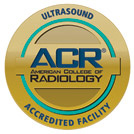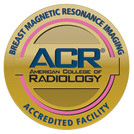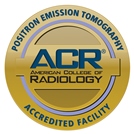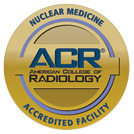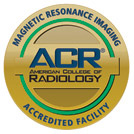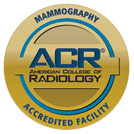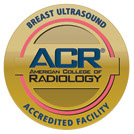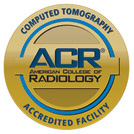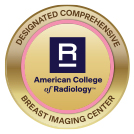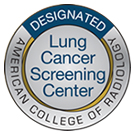A computerized tomography (CT) or computerized axial tomography (CAT) scan creates cross-sectional images of the body using a computer and series of X-rays. Together, these components deliver more detail than X-rays alone. A CT scan is requested to view the body’s blood vessels, soft tissues and bones, especially for difficult-to-reach areas.
How CT Scans Work
CT scans are a minimally invasive procedure. During the scan, a patient lies face up and passes through a tunnel-shaped machine. The interior of the machine rotates in an arc to capture images through a series of narrow X-ray beams passing through the area at multiple angles. The captured images are sent to a computer, which combines them cross-sectionally or creates a composite three-dimensional image.
CT scans can observe and capture varying degrees of density within the body, adding to the overall detail. Spiral CT, a newer technology that allows the scanner to travel in a curved path, takes these capabilities to the next level. Spiral CT eliminates breaks within the final series of images for more consistency, visibility and fluidity.
Along with imaging technology, the radiologist overseeing the procedure may recommend use of a contrast dye. Whether injected, taken orally or delivered via enema, this dye allows for even more clarity of the tissues and other internal structures. Patients may be asked to fast four to six hours before the scan.
Based on the area being imaged, a typical CT scan can last 20 minutes to an hour. Following the procedure, the images are sent to a radiologist for analysis. The results are delivered to the patient’s doctor, who will follow-up to discuss them. Should abnormalities be found, additional testing may be requested or a treatment plan developed to address the condition.
There are a few risks associated with CT scans, including:
- Radiation exposure: Patients who are or think they may be pregnant are advised to tell their doctor ahead of time. An imaging procedure that doesn’t use radiation may be recommended.
- Allergic reactions to contrast material: This can occur when a patient is exposed to an iodine-based contrast material. Allergy medication may be administered to lessen the risk of a reaction.
What Are the Uses of a CT Scan?
A doctor may recommend a CT scan to visualize structures within the:
- Head and brain
- Spine
- Heart
- Shoulders
- Abdominal region
- Chest and lungs
- Knee
This technology is optimal for viewing the blood vessels, soft tissue and bones in each of these regions. Considering this, a CT scan may assist in diagnosing or evaluating the following conditions:
- Certain cancers, including for the liver, lungs and pancreas
- Infections
- Fractures
- Muscle disorders
- Tumors
- Internal bleeding
- Heart disease
Along with identifying and observing a structure, CT scans can help guide biopsy needles to the precise location to extract a tissue sample. CT scans can:
- Reveal the size and location of a tumor
- Determine if cancer has spread throughout the body
- Identify bleeding on the brain
- Determine if an artery has swelled
- See if an organ is swelling or has any lacerations
- Assist with planning for radiotherapy
- Offer greater insight into blood flow, bone density and spine quality
What to Expect During a CT Scan
You’ll arrive in loose-fitting clothing or change into a gown and remove all metal objects before the procedure, including dental instruments, glasses and jewelry.
If a contrast dye is involved, you will consume or be injected with this substance ahead of time. Patients are advised to tell the technologist about any previous allergic reactions to contrast materials.
You will then lie down on the exam table and be asked to stay still before it passes through the scanner to avoid blurry images. For certain angles, you may be asked to lie face down or on your side.
After each passing X-ray, the table will move for the next series. During the procedure, a radiologist will be communicating with you over a two-way microphone or intercom to provide directions.
Has your doctor recommended a CT scan? Contact Midstate Radiology Associates to make an appointment today.





